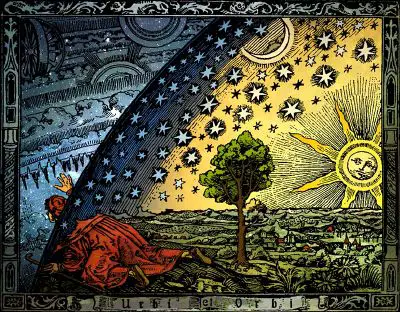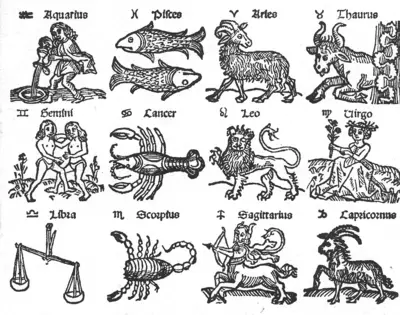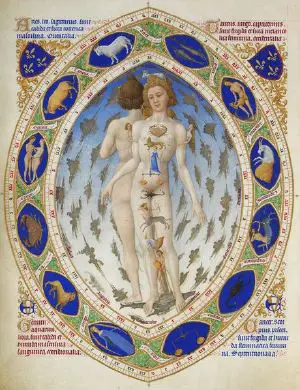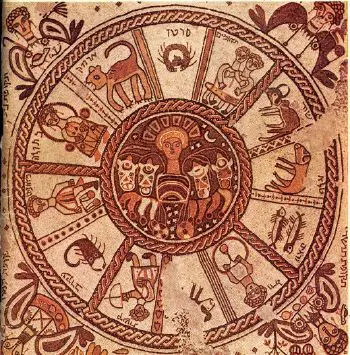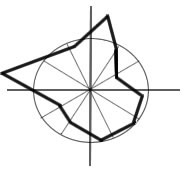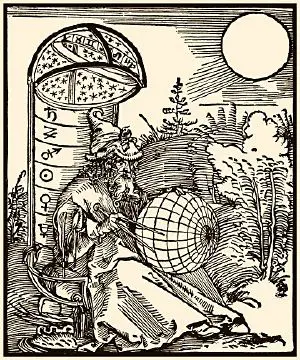Astrology
Astrology is a group of systems, traditions, and beliefs in which knowledge of the relative positions of celestial bodies and related information is held to be useful in understanding, interpreting, and organizing knowledge about personality, human affairs, and other terrestrial events. The word astrology is derived from the Greek αστρολογία, from άστρον (astron, "star") and λόγος (logos, "word"). The -λογία suffix is written in English as -logy, "study" or "discipline." A practitioner of astrology is called an astrologer, or, less often, an astrologist. Historically, the term mathematicus was used to denote a person proficient in astrology, astronomy, and mathematics.[1]
Although the two fields share a common origin, modern astronomy is entirely distinct from astrology. While astronomy is the scientific study of astronomical objects and phenomena, the practice of astrology is concerned with the correlation between heavenly bodies (and measurements of the celestial sphere) and earthly and human affairs.[2] Astrology is variously considered by its proponents to be a symbolic language, a form of art, a form of science, or a form of divination.[3] Critics generally consider astrology to be a pseudoscience or superstition as it has failed empirical tests in controlled studies.[4]
Beliefs
The core beliefs of astrology were prevalent in most of the ancient world and are epitomized in the Hermetic maxim "as above, so below." Tycho Brahe used a similar phrase to justify his studies in astrology: suspiciendo despicio, "by looking up I see downward." Although the belief that events in the heavens are mirrored by those on earth was once generally held in most traditions of astrology around the world, in the West there has historically been a debate among astrologers over the nature of the mechanism behind astrology and whether or not celestial bodies are only signs or portents of events, or if they are actual causes of events through some sort of force or mechanism.
While the connection between celestial mechanics and terrestrial dynamics was explored first by Isaac Newton with his development of a universal theory of gravitation, claims that the gravitational effects of the planets and the stars are what accounts for astrological generalizations are not substantiated by the scientific community, nor are they advocated by most astrologers.
Many of those who practice astrology believe that the positions of certain celestial bodies either influence or correlate with people's personality traits, important events in their lives, physical characteristics, and to some extent their destiny. Most modern astrologers believe that the cosmos (and especially the solar system) acts as "a single unit," so that any happening in any part of it inevitably is reflected in every other part. Skeptics dispute these claims, pointing to a lack of concrete evidence of significant influence of this sort.
Most astrological traditions are based on the relative positions and movements of various real or construed celestial bodies and on the construction of celestial patterns as seen at the time and place of the event being studied. These are chiefly the Sun, the Moon, the planets, the stars and the lunar nodes. The calculations performed in casting a horoscope involve arithmetic and simple geometry, which serve to locate the apparent position of heavenly bodies on desired dates and times based on astronomical tables. The frame of reference for such apparent positions is defined by the tropical or sidereal zodiacal signs on one hand, and by the local horizon (Ascendant) and midheaven (Medium Coeli) on the other. This latter (local) frame is typically further divided into the twelve astrological houses.
In past centuries, astrologers often relied on close observation of celestial objects and the charting of their movements. Today astrologers use data drawn up by astronomers, which are transformed to a set of astrological tables, called ephemerides, that show the changing zodiacal positions of the heavenly bodies through time.
Traditions
There are many different traditions of astrology, some of which share similar features due to the transmission of astrological doctrines from one culture to another. Other traditions developed in isolation and hold completely different doctrines, although they too share some similar features due to the fact that they are drawing on similar astronomical sources, i.e. planets, stars, etc.
Listed below are some significant traditions of astrology. They include, but are not limited to, the following:
- Babylonian astrology
- Horoscopic astrology and its specific subsets:
- Hellenistic astrology
- Jyotish or Vedic astrology
- Persian-Arabic astrology
- Medieval & Renaissance horoscopic astrology
- Modern Western astrology with its specific subsets:
- Modern Tropical and sidereal horoscopic astrology
- Hamburg School of Astrology
- Uranian astrology, subset of the Hamburg School
- Cosmobiology
- Psychological astrology or astropsychology
- Uranian astrology, subset of the Hamburg School
- Chinese astrology
- Kabbalistic astrology
- Mesoamerican astrology
- Nahuatl astrology
- Maya astrology
- Tibetan astrology
- Celtic astrology
Horoscopic Astrology
Horoscopic astrology is a very specific and complex system of astrology that was developed in the Mediterranean region and specifically Hellenistic Egypt sometime around the late second or early first century B.C.E.[5] This tradition deals largely with astrological charts cast for specific moments in time in order to interpret the inherent meaning underlying the alignment of the planets at that moment based on specific sets of rules and guidelines. One of the defining characteristics of this form of astrology that makes it distinct from other traditions is the computation of the degree of the Eastern horizon rising against the backdrop of the ecliptic at the specific moment under examination, otherwise known as the ascendant. Horoscopic astrology has been the most influential and widespread form of astrology across the world, especially in Africa, India, Europe, and the Middle East, and there are several major traditions of horoscopic astrology including Indian, Hellenistic, Medieval, and most other modern Western traditions of astrology.
The Horoscope
Central to horoscopic astrology and its branches is the calculation of a horoscope or what has recently become known as an astrological chart. This is a diagrammatic representation in two dimensions of the celestial bodies' apparent positions in the heavens from the vantage of a location on earth at a given time and place. The horoscope of an individual's birth is called a natal chart—horoscope chart. In ancient Hellenistic astrology the rising sign, or ascendant, demarcated the first celestial house of a horoscope, and the word for the ascendant in Greek was horoskopos. This is the word that the term "horoscope" derives from and in modern times it has come to be used as a general term for an astrological chart as a whole. Other commonly used names for the horoscope/natal chart in English include natus, birth-chart, astrological chart, astro-chart, celestial map, sky-map, star-chart, nativity, cosmogram, vitasphere, soulprint, radical chart, radix, or simply chart, among others.
The Tropical and Sidereal Zodiacs
The path of the sun across the heavens as seen from earth during a full year is called the ecliptic. This, and the nearby band of sky followed by the visible planets, is called the zodiac.
The majority of Western astrologers base their work on the tropical zodiac, which evenly divides the ecliptic into 12 segments of 30 degrees, each with the start of the Zodiac (Aries 0°) being the Sun's position at the March equinox. The zodiacal signs in this system bear no relation to the constellations of the same name but stay aligned to the months and seasons. The tropical zodiac is used as a historical coordinate system in astronomy.
All Jyotish (Hindu) and a few Western astrologers use the sidereal zodiac, which uses the same evenly divided ecliptic but which approximately stays aligned to the positions of the observable constellations with the same name as the zodiacal signs. The sidereal zodiac is computed from the tropical zodiac by adding an offset called Ayanamsa. This offset changes with the precession of the equinoxes.
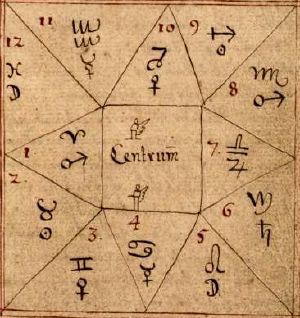
Branches of Horoscopic Astrology
Every tradition of horoscopic astrology can be divided into four specific branches which are directed towards specific subjects or used for specific purposes. Often this involves using a unique set of techniques or a different application of the core principles of the system to a different area. Many other subsets and applications of astrology are derived from the four fundamental branches.
There are four major branches of horoscopic astrology:
- Natal astrology—the study of a person's natal chart in order to gain information about the individual and the individual’s life experience.
- Katarchic astrology—includes both electional and event astrology. The former uses astrology to determine the most auspicious moment to begin an enterprise or undertaking, and the latter to understand everything about an event from the time at which it took place.
- Horary astrology—a system of astrology used to answer a specific question by studying the chart at the moment the question is posed to an astrologer.
- Mundane or world astrology—the application of astrology to world events, including weather, earthquakes, and the rise and fall of empires or religions.
History of Astrology
Origins
The origins of much of astrology that would later develop in Asia, Europe, and the Middle East are found among the ancient Babylonians and their system of celestial omens that began to be compiled around the middle of the second millennium B.C.E. This system of celestial omens later spread from the Babylonians to other areas such as India, China, and Greece, where it merged with pre-existing indigenous forms of astrology. This Babylonian astrology came to Greece initially as early as the middle of the fourth century B.C.E., and then around the late second or early first century B.C.E. after the Alexandrian conquests. This Babylonian astrology was mixed with the Egyptian tradition of Decanic astrology to create Horoscopic astrology. This new form of astrology, which appears to have originated in Alexandrian Egypt, quickly spread across the ancient world into Europe, the Middle East, and India.
Before the Scientific Revolution
From the classical period through the scientific revolution, astrological training played a critical role in advancing astronomical, mathematical, medical, and psychological knowledge. Insofar as the interpretation of supposed astrological influences included the observation and long-term tracking of celestial objects, it was often astrologers who provided the first systematic documentation of the movements of the Sun, the Moon, the planets and the stars. The differentiation between astronomy and astrology varied from place to place; they were indistinguishable in ancient Babylonia, but separated to a greater degree in ancient Greece. The Greeks saw astronomy and astrology as being separate. This idea became widely accepted around the time of the "Great Astronomers," Galileo, Kepler, Brahe, and such, most of which practiced both. Even in those times, astrology was often challenged by Hellenistic skeptics, church authorities, and medieval thinkers.
The pattern of astronomical knowledge gained from astrological endeavors has been historically repeated across numerous cultures, from ancient India through the classical Mayan civilization to medieval Europe. Given this historical contribution, astrology has been called a protoscience along with pseudosciences such as alchemy.
Many prominent scientists, such as Nicholas Copernicus, Tycho Brahe, Galileo Galilei, and Johannes Kepler practiced or significantly contributed to astrology.
Effects on World Culture
Astrology has had a profound influence over the past few thousand years on both Western and Eastern cultures. In the middle ages, when even the educated of the time believed in astrology, the system of heavenly spheres and bodies was believed to reflect on the system of knowledge and the world itself below.
Language
“Influenza,” from Medieval Latin influentia meaning “influence,” was so named because doctors once believed epidemics to be caused by unfavorable planetary and stellar influences. The word “disaster" comes from the Latin dis-aster meaning "bad star." Also, the adjectives "lunatic" (Moon), "mercurial" (Mercury), "martial" (Mars), "jovial" (Jupiter/Jove), and "saturnine" (Saturn) are all words used to describe personal qualities said to resemble or be highly influenced by the astrological characteristics of the planet, some of which are derived from the attributes of the ancient Roman gods they are named after.
Astrology as a Descriptive Language for the Mind
Different astrological traditions are dependent on a particular culture's prevailing mythology. These varied mythologies naturally reflect the cultures they emerge from. Images from these mythological systems are usually understandable to natives of the culture. Most classicists think that Western astrology is dependent on Greek mythology.
Many writers, notably Geoffrey Chaucer and William Shakespeare, used astrological symbolism to add subtlety and nuance to the description of their characters' motivations.[6] [7] An understanding of astrological symbolism is needed to fully appreciate such literature. Some more modern thinkers, notably Carl Jung, believed in its descriptive powers regarding the mind without necessarily subscribing to its predictive claims.[8] Consequently, some look at astrology as a way of learning about oneself and one's motivations. Increasingly, psychologists and historians have become interested in Jung's theory of the fundamentality and indissolubility of archetypes in the human mind and their correlation with the symbols of the horoscope.[9]
Western Astrology and Alchemy
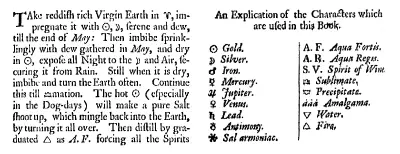
Alchemy in the Western World and other locations where it was widely practiced was (and in many cases still is) closely allied and intertwined with traditional Babylonian-Greek style astrology; in numerous ways they were built to complement each other in the search for hidden knowledge. Astrology has used the concept of classical elements from antiquity up until the present. Most modern astrologers use the four classical elements extensively, and indeed it is still viewed as a critical part of interpreting the astrological chart. Traditionally, each of the seven planets in the solar system as known to the ancients was associated with, held dominion over, and ruled a certain metal.
The Seven Liberal Arts and Western Astrology
In medieval Europe, a university education was divided into seven distinct areas, each represented by a particular planet and known as the Seven Liberal Arts.
Dante Alighieri speculated that these arts, which grew into the sciences we know today, fit the same structure as the planets. As the arts were seen as operating in ascending order, so were the planets and so, in decreasing order of planetary speed, Grammar was assigned to the quickest moving celestial body (the Moon), Dialectic to Mercury, Rhetoric to Venus, Music to the Sun, Arithmetic to Mars, Geometry to Jupiter and Astronomia to the slowest moving Saturn. After this sequence, wisdom was supposed to have been achieved by the medieval university student.
Astrology and Science
The Modern Era
By the time of Francis Bacon and the scientific revolution, newly emerging scientific disciplines acquired a method of systematic empirical induction validated by experimental observations, which lead to the scientific revolution. At this point, astrology and astronomy began to diverge; astronomy became one of the central sciences while astrology was increasingly viewed by natural scientists as an occult science or superstition. This separation accelerated through the eighteenth and nineteenth centuries.[10]
Within the contemporary scientific community, astrology is generally labeled as a pseudoscience and it has been criticized as being unscientific both by scientific bodies and by individual scientists.[11] In 1975 the American Humanist Association published one of the most widely known modern criticisms of astrology, characterizing those who continue to have faith in the subject as doing so "in spite of the fact that there is no verified scientific basis for their beliefs, and indeed that there is strong evidence to the contrary."[12] Astronomer Carl Sagan did not sign the statement, noting that, while he felt astrology lacked validity, he found the statement's tone authoritarian. He suggested that the lack of a causal mechanism for astrology was relevant but not in itself convincing.[13]
Although astrology has had no accepted scientific standing for three centuries, it has been the subject of much research among astrologers since the beginning of the twentieth century. In his landmark study of twentieth-century research into natal astrology, vocal astrology critic Geoffrey Dean noted and documented the burgeoning research activity, primarily within the astrological community.[14]
Claims about Obstacles in Research
Astrologers have argued that there are significant obstacles in the way of carrying out scientific research into astrology today, including funding, lack of background in science and statistics by astrologers, and insufficient expertise in astrology by research scientists to test astrological claims.[15][16] There are only a handful of journals dealing with scientific research into astrology (i.e. astrological journals directed towards scientific research or scientific journals publishing astrological research). Some astrologers have argued that few practitioners today pursue scientific testing of astrology because they feel that working with clients on a daily basis provides a personal validation for them.[16]
Some astrologers argue that most studies of astrology do not reflect the nature of astrological practice and that existing experimental methods and research tools are not adequate for studying this complex discipline.[17] Some astrology proponents claim that the prevailing attitudes and motives of many opponents of astrology introduce conscious or unconscious bias in the formulation of hypotheses to be tested, the conduct of the tests, and the reporting of results.[18]
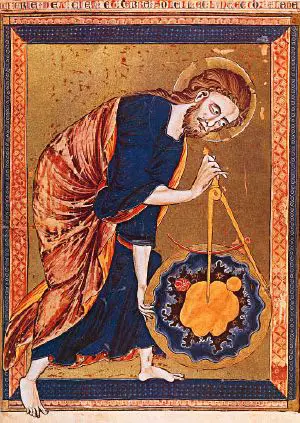
Mechanism
Critics claim that a central problem in astrology is the lack of evidence for a scientifically defined mechanism by which celestial objects can supposedly influence terrestrial affairs. However, astrologers claim that a lack of an explanatory mechanism would not scientifically invalidate astrological findings.[18]
Though physical mechanisms are still among the proposed theories of astrology, few modern astrologers believe in a direct causal relationship between heavenly bodies and earthly events.[19][16] Some have posited acausal, purely correlative relationships between astrological observations and events, such as the theory of synchronicity proposed by Jung.[20] Astrophysicist Victor Mansfield suggests that astrology should draw inspiration from quantum physics.[21] Others have posited a basis in divination. Still others have argued that empirical correlations can stand on their own epistemologically, and do not need the support of any theory or mechanism.[18] To some observers, these non-mechanistic concepts raise serious questions about the feasibility of validating astrology through scientific testing, and some have gone so far as to reject the applicability of the scientific method to astrology almost entirely.[18] Some astrologers, on the other hand, believe that astrology is amenable to the scientific method, given sufficiently sophisticated analytical methods, and they cite pilot studies they claim support this view.[22] Consequently, a number of astrologers have called for continuing studies of astrology based on statistical validation.[17]
Research Claims and Counter-claims
Several individuals, most notably French psychologist and statistician Michel Gauquelin, claimed to have found correlations between some planetary positions and certain human traits, such as vocations. Gauquelin's most widely known claim is known as the Mars effect, which is said to demonstrate a correlation between the planet Mars occupying certain positions in the sky more often at the birth of eminent sports champions than at the birth of ordinary people.[23] The Mars effect has been the subject of studies claiming to refute it, and studies claiming to support and/or expand the original claims, but neither the claims nor the counterclaims have received mainstream scientific notice. [24]Nick Kollerstrom, How Ertel Rescued the Gauquelin Effect Correlation 23(1) (2005). Retrieved January 12, 2023. </ref>
Besides the Mars-athletes claims, astrological researchers claim to have found statistical correlations for physical attributes, accidents, personal and mundane events, social trends such as economics, and large geophysical patterns.[17]
The scientific community, where it has commented, claims that astrology has repeatedly failed to demonstrate its effectiveness in numerous controlled studies. Effect size studies in astrology conclude that the mean accuracy of astrological predictions is no greater than what is expected by chance, and astrology's perceived performance has disappeared on critical inspection.[25] In reference to personality tests, astrologers have shown a consistent lack of agreement. One such double-blind study in which astrologers attempted to match birth charts with results of a personality test, which was published in the reputable peer-reviewed scientific journal Nature, claimed to refute astrologers' assertions that they can solve clients' personal problems by reading natal charts. The study concluded that astrologers had no special ability to interpret personality from astrological readings.[26] When testing for cognitive, behavioral, physical, and other variables, one study of astrological "time twins" claimed that human characteristics are not molded by the influence of the sun, moon, and planets at the time of birth.[25] Skeptics of astrology also suggest that the perceived accuracy of astrological interpretations and descriptions of one's personality can be accounted for in that we tend to exaggerate positive “accuracies” and overlook whatever does not really fit, especially when vague language is used.[25] It has also been suggested that the failed tests of researchers who are critical of astrology stem from the testers' failure to understand astrology and its limitations.[18]
Notes
- ↑ Darrel H. Rutkin, Galileo, Astrology and the Scientific Revolution: Another Look History & Philosophy of Science Colloquia, Stanford University. Retrieved January 12, 2023.
- ↑ astrology Merriam-Webster Dictionary. Retrieved January 12, 2023.
- ↑ Alain Nègre, A Transdisciplinary Approach to Science and Astrology. Retrieved January 12, 2023.
- ↑ Lucas Principe, Grounded in fiction — the case against astrology NU Sci, 2019. Retrieved January 12, 2023.
- ↑ David Pingree, From Astral Omens to Astrology from Babylon to Bikaner (Roma: Istituto Italiano per L'Africa e L'Oriente, 1997), 26.
- ↑ Walter Clyde Curry, Chaucer and the Mediaeval Sciences (Barnes & Noble, 1960, ISBN 978-0048210050).
- ↑ Priscilla Costello, Shakespeare and the Stars: The Hidden Astrological Keys to Understanding the World’s Greatest Playwright (Ibis Press, 2016, ISBN 0892542160).
- ↑ Carl G. Jung, The Basic Writings of C.G. Jung (Modern Library, 1993, ISBN 978-0679600718), 362-363.
- ↑ Richard Tarnas, Cosmos and Psyche: Intimations of a New World View (New York: Viking, 2006, ISBN 0670032921).
- ↑ Jim Tester, A History of Western Astrology (Boydell Press, 1990, ISBN 978-0851154466).
- ↑ British Physicist Debunks Astrology in Indian Lecture Beliefnet. Retrieved January 12, 2023.
- ↑ Objections to Astrology: A Statement by 186 Leading Scientists The Humanist, September/October 1975. Retrieved January 12, 2023.
- ↑ Carl Sagan, "Letter" The Humanist 36 (1976): 2.
- ↑ Geoffrey A. Dean, Recent Advances in Natal Astrology: A Critical Review 1900-1976. (Astrological Association, 1977).
- ↑ Hans Jurgen Eysenck and D.K.B. Nias, Astrology: Science or Superstition? (Temple Smith, 1982, ISBN 978-0851172149).
- ↑ 16.0 16.1 16.2 Garry Phillipson, Astrology in the Year Zero (London: Flare Publications, 2000, ISBN 0953026191).
- ↑ 17.0 17.1 17.2 Mark Pottengen (ed.), Astrological Research Methods: An Isar Anthology (Los Angeles: International Society for Astrological Research, 1995, ISBN 978-0964636606).
- ↑ 18.0 18.1 18.2 18.3 18.4 Mike Harding, Prejudice in Astrological Research Retrieved January 12, 2023.
- ↑ Percy Seymour, Astrology: The Evidence of Science (Penguin, 1991, ISBN 978-0140192261).
- ↑ Safron Rossi and Keiron Le Grice (eds.), Jung on Astrology (Routledge, 2017, ISBN 978-1138230736).
- ↑ Victor Mansfield, An Astrophysicist's Sympathetic and Critical View of Astrology A plenary talk presented at the Cycles and Symbols Conference, San Francisco, February 14-16, 1997. Retrieved January 12, 2023.
- ↑ D. Cochrane, “Towards a Proof of Astrology: An AstroSignature for Mathematical Ability” International Astrologer ISAR Journal 33(2) (Winter-Spring 2005).
- ↑ Michel Gauquelin, Cosmic Influences on Human Behavior (Santa Fe: Aurora, 1985, ISBN 094335823X).
- ↑ M. Zelen, P. Kurtz, and G. Abell, “Is There a Mars Effect?” The Humanist 37 (6): 1977:36-39.
- ↑ 25.0 25.1 25.2 James E. Alcock, Jean Burns, and Anthony Freeman (eds.), Psi Wars: Getting to Grips with the Paranormal (Imprint Academic, 2003, ISBN 978-0907845485).
- ↑ Shawn Carlson, A Double-blind Test of Astrology Nature 318 (1985): 419–425. Retrieved January 12, 2023.
ReferencesISBN links support NWE through referral fees
- Alcock, James E., Jean Burns, and Anthony Freeman (eds.). Psi Wars: Getting to Grips with the Paranormal. Imprint Academic, 2003. ISBN 978-0907845485
- Berlinski, David. The Secrets of the Vaulted Sky: Astrology and the Art of Prediction. Harcourt, 2003. ISBN 0151005273
- Cornelius, Geoffrey. Moment of Astrology. Wessex Astrologer Ltd. 2005, ISBN 1902405110
- Costello, Priscilla. Shakespeare and the Stars: The Hidden Astrological Keys to Understanding the World’s Greatest Playwright. Ibis Press, 2016. ISBN 0892542160
- Curry, Walter Clyde. Chaucer and the Mediaeval Sciences. Barnes & Noble, 1960. ISBN 978-0048210050
- Dean, Geoffrey A. Recent Advances in Natal Astrology: A Critical Review 1900-1976. Astrological Association, 1977. ASIN B0007C7H3O
- De Vore, Nicholas. Encyclopedia of Astrology. New York: Astrology Classics, 2005. ISBN 1933303093
- Eade, J. C. The Forgotten Sky: A Guide to Astrology in English Literature. Oxford University, 1984. ISBN 0198128134
- Eysenck, Hans Jurgen, and D.K.B. Nias. Astrology: Science or Superstition? Temple Smith, 1982. ISBN 978-0851172149
- Gauquelin, Michel. Cosmic Influences on Human Behavior. Santa Fe: Aurora, 1985. ISBN 094335823X
- Gauquelin, Michel. The Scientific Basis of Astrology. New York: Stein and Day Publishers, 1970. ISBN 0812813502
- Hand, Robert. Horoscope Symbols. Altgen, PA: Schiffer Publications, 1987. ISBN 0914918168
- Jung, Carl G. The Basic Writings of C.G. Jung. Modern Library, 1993. ISBN 978-0679600718
- Kepler, Johannes. The Harmony of the World. American Philosophical Society, 1997. ISBN 0871692090
- Kepler, Johannes. On the More Certain Fundamentals of Astrology. Kessinger Publishing, 2003. ISBN 0766133753
- Newman William R., and Grafton, Anthony, (eds.). Secrets of Nature: Astrology and Alchemy in Early Modern Europe. Cambridge, MA: MIT, 2006. ISBN 0262640627
- Phillipson, Garry. Astrology in the Year Zero. London: Flare Publications, 2000. ISBN 0953026191
- Pottengen, Mark (ed.). Astrological Research Methods: An Isar Anthology. Los Angeles: International Society for Astrological Research, 1995. ISBN 978-0964636606
- Ptolemy. Tetrabiblos. Cambridge, MA: Harvard University, 1980. ISBN 0674994795
- Rossi, Safron, and Keiron Le Grice (eds.), Jung on Astrology. Routledge, 2017. ISBN 978-1138230736
- Seymour, Percy. Astrology: The Evidence of Science. Penguin, 1991. ISBN 978-0140192261
- Tarnas, Richard Cosmos and Psyche: Intimations of a New World View. New York: Viking, 2006. ISBN 0670032921
- Tester, Jim. A History of Western Astrology. Boydell Press, 1990. ISBN 978-0851154466
- Wedel, Theodore Otto. Astrology in the Middle Ages. Mineola, NY: Dover Publications, 2005. ISBN 048643642X
External links
All links retrieved August 19, 2023.
- Is Astrology a Pseudoscience? Learn Religions
- Astrology and Science
- Astrology Dictionary Astrology Weekly
- Astrology and Chaos Theory Chaos Astrology
- Faculty of Astrological Studies
- School of Traditional Astrology
- Astrology Indianetzone
- Kepler College of Astrological Arts and Sciences
- Hellenistic Astrology Internet Encyclopedia of Philosophy
- Astrology in the Year Zero.
- Astrologia
- Astrology: Between Religion and the Empirical by Gustav-Adolf Schoener
- History of Astrology in the Renaissance
Credits
New World Encyclopedia writers and editors rewrote and completed the Wikipedia article in accordance with New World Encyclopedia standards. This article abides by terms of the Creative Commons CC-by-sa 3.0 License (CC-by-sa), which may be used and disseminated with proper attribution. Credit is due under the terms of this license that can reference both the New World Encyclopedia contributors and the selfless volunteer contributors of the Wikimedia Foundation. To cite this article click here for a list of acceptable citing formats.The history of earlier contributions by wikipedians is accessible to researchers here:
The history of this article since it was imported to New World Encyclopedia:
Note: Some restrictions may apply to use of individual images which are separately licensed.
